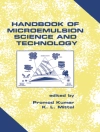Full-Spectrum Responsive Photocatalytic Materials: From Fundamentals to Applications provides a comprehensive overview on the design, synthesis concepts, mechanisms, characterization techniques, and advances and limitations in applications of full-spectrum responsive photocatalytic materials. The book starts with the fundamentals of full-spectrum responsive materials. It then discusses the problems of most semiconductors that are not active in the whole solar spectrum and explains the benefits of utilizing full-spectrum responsive photocatalysts. Other sections describe examples of full-spectrum responsive photocatalysts classified by material types and provide the design principles and characterization protocols for these promising materials. Photocatalysis technology based on semiconductor materials holds great promise in various fields due to its potential advantages in energy-saving, cost and environmental impact. Maximizing the utilization of solar energy is always the target of pursuits in the areas of photocatalysis, and understanding and constructing appropriate full-spectrum (UV-VIS-NIR) responsive photocatalytic materials offer ways to better realize the practical utilization of photocatalysis. – Provides new insights into full-spectrum (UV-VIS-NIR) responsive photocatalysts and successful approaches for developing these materials- Assists readers working to develop more efficient catalysts and establish a solid structure activity correlation- Suggests possibilities for the alteration of conventional photocatalysts to utilize the full spectrum of solar light
Yanyan Duan & Chuanyi Wang
Full-Spectrum Responsive Photocatalytic Materials [EPUB ebook]
From Fundamentals to Applications
Full-Spectrum Responsive Photocatalytic Materials [EPUB ebook]
From Fundamentals to Applications
Dieses Ebook kaufen – und ein weitere GRATIS erhalten!
Sprache Englisch ● Format EPUB ● ISBN 9780443136320 ● Verlag Elsevier Science ● Erscheinungsjahr 2024 ● herunterladbar 3 mal ● Währung EUR ● ID 9324672 ● Kopierschutz Adobe DRM
erfordert DRM-fähige Lesetechnologie












